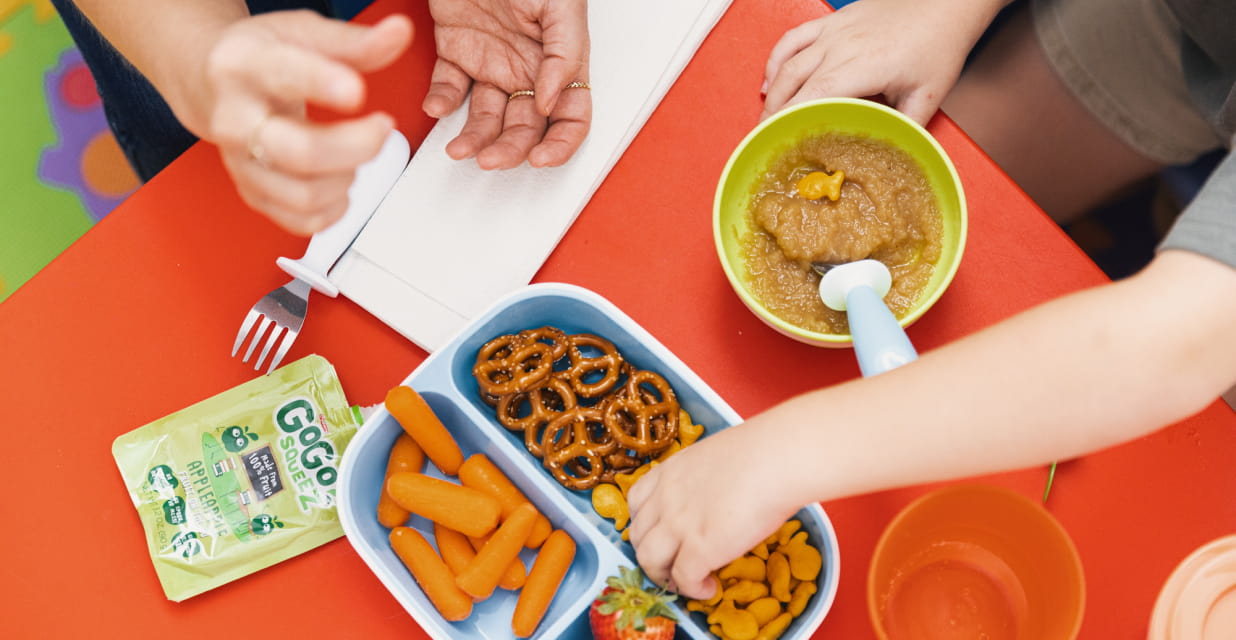The holidays are times of family and traditions, many of which involve food and eating. However, when your child eats very few foods, the holidays can bring frustration and stress as you navigate the changes in routine, new foods and the expectations of eating them, and the abundance of desserts and sweets.
We’re sharing some recommendations to help you decrease stress surrounding mealtime so that you can enjoy the holidays with your loved ones.
- Limit changes in routine. Holidays can often mean traveling, time changes, and lots of familiar and new faces. These changes can be overwhelming. Try to keep your child’s mealtime routines, including the time of day they eat and any cleanup routine, the same. If possible, bring familiar plates, utensils, and cups too!
- Have your child eat a typical meal or snack before the big meal, especially if the big meal is later than the child’s usual mealtime. Then, keep a preferred snack at the ready for your child to eat with the whole family. The focus of the holiday meal should be family, not a struggle to explore new and tricky foods. If available, you can always bring some leftovers home for food exploration at a later time.
- Prepare your child and set expectations. Explain to your child what activities may be happening and show pictures of who they can expect to be there. If there is going to be food present that may be tricky for your child to tolerate, try exploring the food through play the weeks before the holiday at home, where they will likely feel the safest.
- Limit sweets! The holidays are filled with desserts that are sometimes hard to resist. Sugar can suppress appetite limiting consumption of nutritious foods. Try to keep sweets until the end of a meal; however, avoid making the availability of dessert dependent upon how they ate the rest of their meal.
Try these suggestions so you can focus on enjoying your time with loved ones.
The SmallTalk family wishes you and yours a very Happy Thanksgiving!
Lauren Fong
